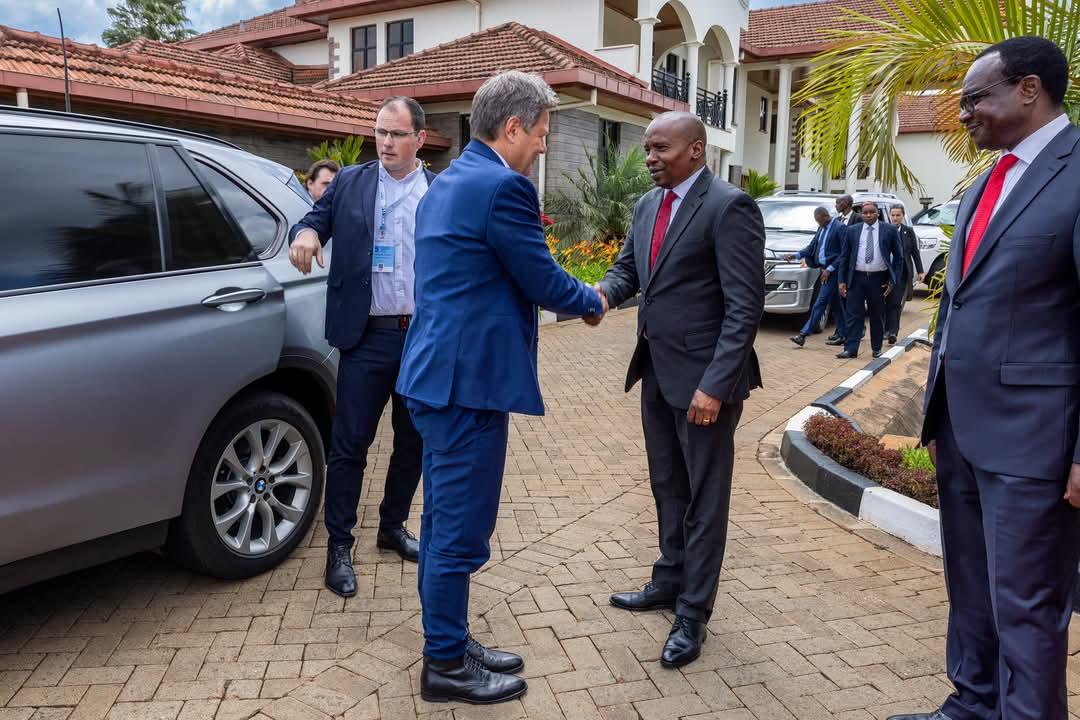
DP Kindiki Urges Strengthened Climate Financing for Africa » Capital News
NAIROBI, Kenya, Dec 4—Deputy President Kithure Kindiki has called for enhanced climate financing mechanisms to support African nations in addressing the growing impacts of climate change.
During a bilateral meeting with German Vice Chancellor and Minister for Economic Affairs and Climate Action Robert Habeck at his Official Residence in Karen, Nairobi, Kindiki emphasized the urgency of tackling climate change, describing it as “the most consequential threat that we face today.”
He pointed out that Kenya, like other African countries, is bearing the brunt of climate change, with prolonged droughts, erratic rainfall, and shifting weather patterns severely impacting food security, water access, and energy generation.
“The impact and consequences of this devastating threat are deeply felt in Africa,” Kindiki said, stressing that climate change continues to undermine Kenya’s development goals.
Kindiki commended Kenya’s leadership under President William Ruto, who has been at the forefront of advocating for climate action, climate justice, and climate financing across the African continent. “President Ruto has been the thought leader for Africa, championing these issues and highlighting the need for collective solutions to this collective threat,” Kindiki added.
Looking ahead, Kindiki expressed optimism about the upcoming Nairobi Climate Summit, particularly in addressing green financing and strengthening Kenya’s efforts to mitigate the effects of climate change while overcoming adaptation challenges.
He also called on Germany to continue its support, building on its strong leadership in climate diplomacy to enhance Kenya’s capacity to address these climate threats effectively. “Germany has been a leader in this area, and we hope to build on that leadership to strengthen Kenya’s capacity to address this global threat,” he said.
The bilateral talks also focused on expanding cooperation between Kenya and Germany in various sectors, including agriculture, livestock, labor migration, tourism, air services, trade, and investment. Notably, Germany is a key destination for Kenyan exports, including cut flowers, coffee, live plants, and nuts.
Recently, the two nations signed a bilateral labor agreement that will provide Kenyans with job opportunities in Germany.
The meeting was attended by senior officials from both countries, including Kenya’s Cabinet Secretary for Education Julius Ogamba, State Department for Devolution Principal Secretary Teresia Mbaika, and State Department for Diaspora Affairs Principal Secretary Roseline Njogu, among others.
About The Author